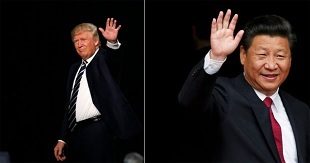Why it can’t work everywhere
One of the most rigorous efforts to understand the political conditions that made the Rwandan model possible has emerged from the `African Power and Politics research project’ led by David Booth, Tim Kelsall and others. They argue that Kagame’s government is an example of “developmental patrimonialism”. In this system, the potentially damaging aspects of patrimonial politics are held in check by a leader who enjoys tight control over patronage networks. These include jobs for the boys, waste, and inefficiency.
This authority needs to be established both internally and externally. External political control is required because the threat of electoral defeat by a strong opposition party may force the government to prioritise short-term survival over long-term investments. Internal control is required because the absence of checks and balances on the ruling party is likely to exacerbate corruption.
When these conditions hold, elements of patrimonialism may be economically productive by generating resources that are channeled back into the system. In the Rwandan case, the Rwandan Patriotic Front’s economic and political dominance has not undermined development because the funds generated through party-owned enterprises have often been reinvested in the economy.
Unintended consequences
The problem is that these conditions don’t hold in most African states. With a few exceptions such as Chad and Angola, the ruling party cannot aspire to the level of dominance witnessed in Rwanda because the opposition is too strong for this degree of political control to be sustained. In Kenya and Zimbabwe, for example, the opposition has consistently won a large share of the legislative and presidential vote.
In addition, even some states that feature more dominant ruling parties have consistently failed to impose economic discipline on their governments. Instead, entrenched clientelism and internal factionalism have typically undermined anti-corruption efforts. This is true for both Angola and Chad, hurting efforts to reduce poverty and boost economic growth.
Shorn of the internal and external political control required to make it work, the application of the Rwandan model elsewhere would generate very different results.
Extending the control of the ruling party over the economy is more likely to increase graft and waste than to spur economic activity. And efforts to neutralise opposition parties are likely to be strongly resisted, leading to political instability and economic uncertainty.
What this means is that if other countries on the continent try to implement the Rwandan model, the chances are that they will experience all of its costs while realising few of its benefits.
*****
Nic Cheeseman is Professor of Democracy, University of Birmingham
Source: theconversation
 The Independent Uganda: You get the Truth we Pay the Price
The Independent Uganda: You get the Truth we Pay the Price


